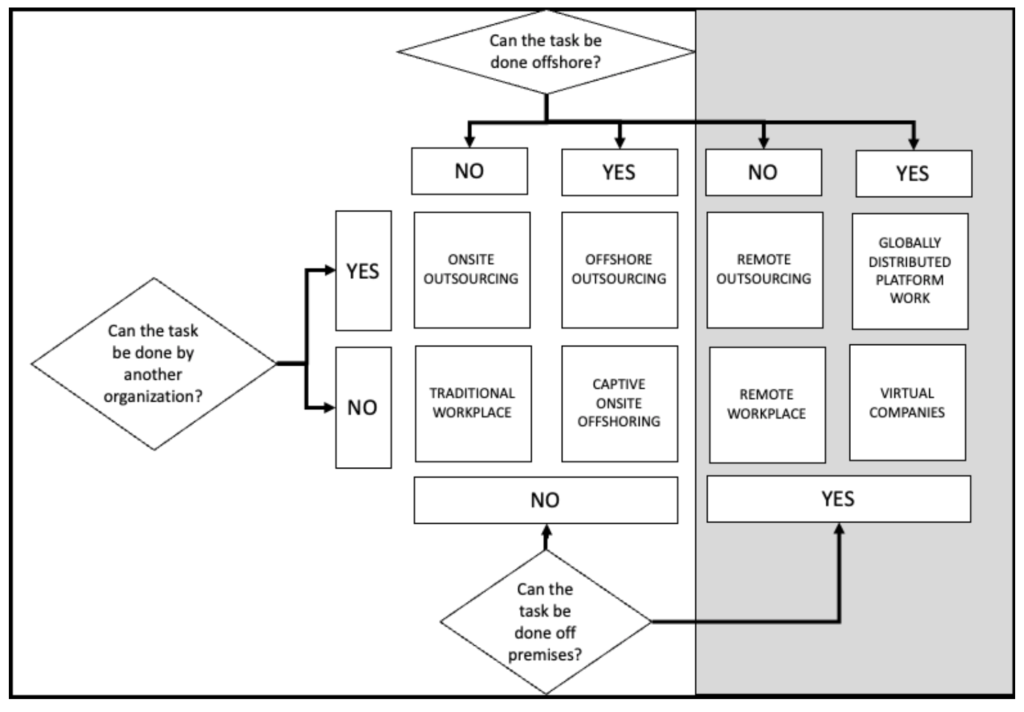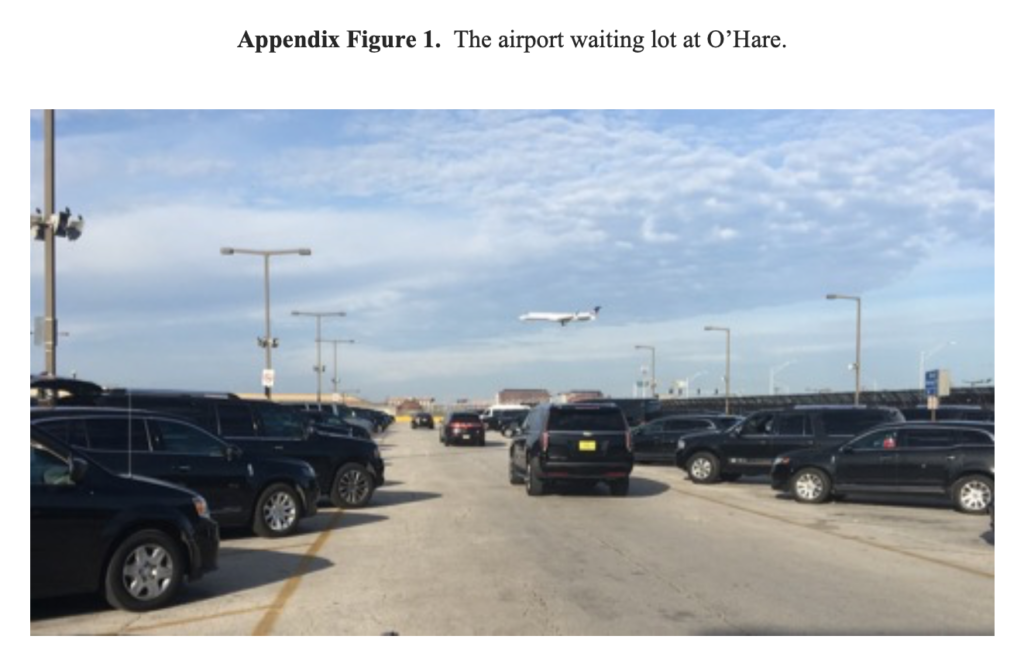Remote Work
My interest in remote work grows out of my interest in offshoring and outsourcing. I worked with Chris Erickson on a theoretical and empirical project related to understanding why some workplaces are transformed by technologies, and others are not. We focus on the institutions that shape how technology is adopted and whether job and work transformation occurs.
Erickson, C. L., & Norlander, P. (2022). How the past of outsourcing and offshoring is the future of post‐pandemic remote work: A typology, a model and a review. Industrial Relations Journal, 53(1), 71-89.
Accepted manuscript: https://ecommons.luc.edu/business_facpubs/216/
Abstract
Information and communication technology (ICT) challenges traditional assumptions about the capacity to manage workers beyond organizational and physical boundaries. A typology connects a variety of non-traditional work organizations made possible by ICT, including offshoring, outsourcing, remote work, virtual companies, and platforms. A model illustrates how new technology serves as a proximate cause for a revision of social contracts between capital, labor and government reached through bargaining, and how external shocks such as the COVID-19 pandemic, the institutional environment, and limitations in practice influence how technology changes the organization of work. An historical case illustrates the general features of the model, and a review of the outsourcing and offshoring literature provides instructive examples of how features of the model will potentially influence the future of post-pandemic remote work.
Highlights
We connect quadrants of offshoring and outsourcing to newer forms of work organization: remote outsourcing, virtual companies, remote workplaces, and globally distributed platform work.

Control of Gig Workers
Non-standard work arrangements managed through software in the “gig economy” change traditional employer-employee arrangements. Software companies that pay independent contractors rather than hiring employees might change the degree of power firms have over workers’ day-to-day work lives.
Our study finds that software intermediaries do increase drivers’ perception of employer control over the work, but do not decrease intrinsic motivation, while also increasing drivers’ enjoyment of their work tasks.
Norlander, P., Jukic, N., Varma, A., & Nestorov, S. (2021). The Effects of technological supervision on gig workers: organizational control and motivation of Uber, taxi, and limousine drivers. The International Journal of Human Management, DOI: 10.1080/09585192.2020.1867614.
Accepted Manuscript: https://papers.ssrn.com/sol3/papers.cfm?abstract_id=3756543
Abstract
Does supervision from technological platforms alter gig workers’ motivation and perceptions of control? We address this question with two field studies set in the passenger livery industry. A between-subjects field survey (n=50) finds that while UberX drivers perceive significantly greater organizational control compared to taxi drivers, they do not report significantly higher levels of intrinsic motivation, needs satisfaction or enjoyment of work. In a follow-up within-subjects field experiment (n=79), we seek to identify the causal impact of technological supervision on drivers’ perceptions of control and motivation. Black car limousine drivers who sometimes work on the UberBlack platform are randomly assigned to respond to questions about their perceptions while driving either for Uber or their limousine company. Limousine drivers in the Uber condition report greater market control and enjoyment of the work. We draw several conclusions: 1) large differences between gig workers and incumbent workers are selection effects, and 2) Uber’s platform modestly increases perceptions of market control and task enjoyment with 3) no negative impact on motivation or needs satisfaction. We discuss the implications for employment relationships and human resources management.
Highlight
I oversaw the data collection on this project, and it was a very eye-opening experience. In 2016-2017, I hired dozens of undergraduate and graduate Research Assistants (RAs) to go into the field and interview taxi, limousine, and Uber drivers . Students and drivers participated eagerly. Drivers told us candidly how they felt about Uber and taxi companies. We learned about the history of the livery industry in Chicago. See “Uber Argues Driver Names Are ‘Closely Guarded Trade Secrets,” Bloomberg News, September 3, 2019.
